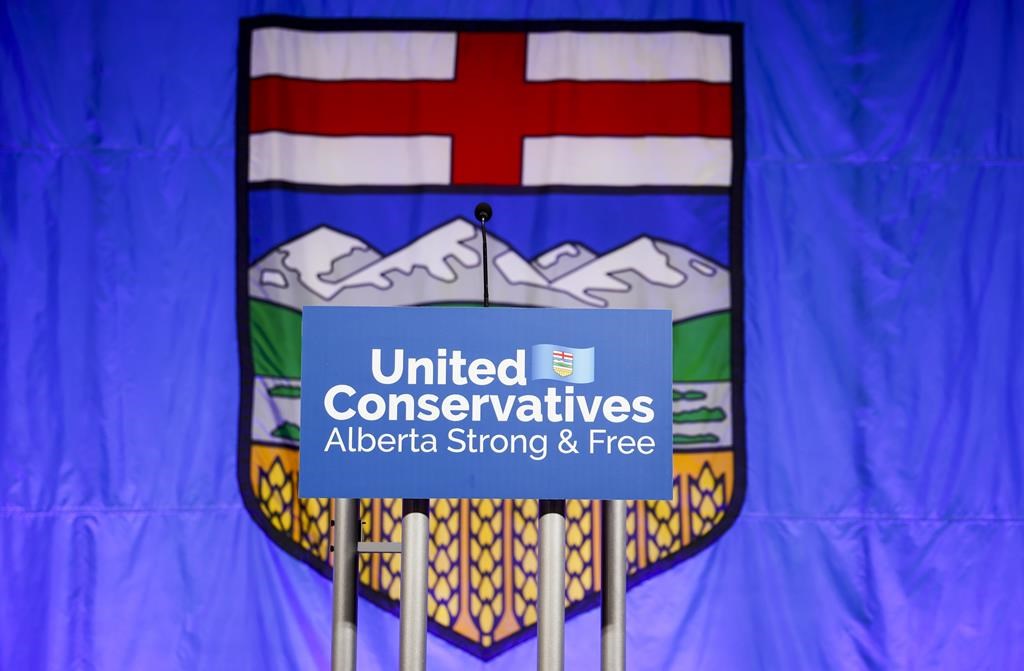Alberta’s rivals United Conservative Party and NDP remain deadlocked in the polls 68 days before the provincial election, a ThinkHQ survey suggests.

In a report published on Tuesday, the public relations firm said the NDP holds 46 per cent of the decided vote, which is essentially tied with the UCP at 45 per cent. The NDP regained a “nominal lead” over the UCP since ThinkHQ’s last survey in January.
Only 13 per cent of voters are undecided about their vote, according to the report.
“The results of this survey are a bit surprising, almost counter-intuitive,” ThinkHQ president Marc Henry said in a statement.
“The Smith government has released a ‘chicken in every pot’ budget, are spending a lot on advertising on the budget and their ‘inflation-fighting’ measures … Yet, they aren’t seeing a return on that investment in the polls.”

ThinkHQ’s survey comes after the Angus Reid Institute published a report earlier this month suggesting Premier Danielle Smith only has an approval rating of 46 per cent.
Around 38 per cent of Albertans strongly disapprove of her, the report said.
It also comes after Smith promised a balanced budget and a fiscal plan of $68.3 billion this year, as well as several “inflationary fighting” measures such as affordability payments.

Get breaking National news
Lisa Young, a political scientist at the University of Calgary, said the UCP is having a hard time convincing reluctant voters to cast their ballots for the party again. Reluctant voters are those who voted for the UCP in 2019 but may not this year.
Smith’s polarizing figure may be a contributing factor: those who deeply oppose her may vote NDP or not show up to the polls at all, Young said.

“A substantial group of voters who are deeply opposed to her and some of the ideas she represents … That’s making it hard for the UCP to win those people over,” Young told QR Calgary.
“There is a group of people who voted for them in 2019 but aren’t committed to voting for them this time around.
“But (the UCP) hasn’t been able to reach enough of those voters to bring them back to supporting the party.”
However, Young said the UCP’s waning popularity is a product of when former premier Jason Kenney was in power. Those who voted for the party previously may be unsatisfied by either the United Conservative government’s response to the COVID-19 pandemic or to the budgetary cuts in 2019, she said.
“Danielle Smith is a new fresh face, but I think she hasn’t been as successful as the party might have hoped in moving entirely beyond these questions of how the party has governed,” Young said.
“Do voters go to the polls with reinvestments in mind? Or do they go to the polls with the original cuts from 2019 in mind? That’s presumably going to decide the election in some places.”

Young said survey results in Calgary and Edmonton paint an interesting picture of where political parties will spend most of their time campaigning this spring.
Calgary will be a battleground that will likely determine the outcome of the next election, according to ThinkHQ. Around 48 per cent of Calgarian voters said they will vote for the NDP, but the report said the two parties are evenly matched within the Calgary Metropolitan Area.
Edmonton, however, will be an NDP stronghold. The report said around 68 per cent of voters there declared their intentions to vote for the NDP.
However, Young noted that the different methodologies used by different pollsters, relatively small sample sizes and the margins of error mean the election results may vary. Political parties will be relying on their own polls instead.
“This is noise to these parties. The parties are doing their own polling where they’re trying to figure out who is available to them as voters in key parts of the province,” she said.
“They’re also doing a lot of focus groups where they bring in random selections of people who fit certain demographic characteristics and try out different messages on them and see what resonates.”
ThinkHQ’s report was published after surveying 1,122 adult Albertans who were randomly invited to complete the survey from an Angus Reid Forum panel between March 14 and March 16. The margin of error for the survey is around 2.9 percentage points according to the public affairs firm.








Comments
Want to discuss? Please read our Commenting Policy first.